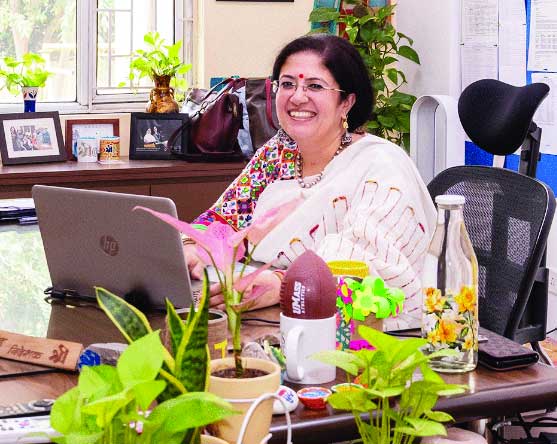There are several issues hindering the education sector from realising its potential. These need immediate addressal, says UTTARA SINGH
The education sector has undergone a major catharsis in the last decade, thanks to technology. Undoubtedly, the Government and institutions have been making untiring efforts to reform the existing education model; however, there are still several issues, the nation is grappling with, which is hindering the sector from realising its huge potential. These are the issues that need immediate addressal.
Areas of improvement are:
Rote learning: We have come a long way with time, however, we still have not been able to detach ourselves from rote learning and focus on conceptual learning. Many schools are leading and changing the system at their level but only a small population has access to it and not everybody can afford the education they are offering.
Therefore, it becomes important for the government to take the onus of responsibility to introduce and implement effective strategies and eradicate rote learning from the schools at all levels.
The Government should come forward and encourage schools to introduce conceptual learning which avoids rote learning. This will not only help students to understand the concepts in a better way but will also help them to apply them effectively.
Introduction of technology: In this renaissance of technology, the education system can’t afford to function in silos. The education system must whole-heartedly embrace technology and pass it on to students as their future relies on it!
Students must be taught about technology right from the early years of their education so that they do not face any problems in the future. Moreover, they should be taught to use it wisely and cautiously.
Evaluation system: In the present education system, marks still play a crucial role in assessing a student's ability and deciding their future. The pressure of obtaining good marks often leaves the students burdened and makes them underperform.
Instead of evaluating a student's knowledge by a three-hour exam, more impetus should be given to communication skills, leadership skills, classroom participation, projects and extra-curricular activities.
A healthy mix of subjects: We all grew up hearing that the sharpest minds opt for Science and Humanities was considered second best. Students should be given the option of choosing subjects that interest them. A more liberal mix of subjects should be encouraged.
Better training of educators: We live in an ever-changing and dynamic world. This means that day after day, things around us keep changing and we have to adapt ourselves according to it to survive and grow.
With new technology seeping into the education system and with different kinds of students with different interests and talents, there is an impelling need for all the teachers to receive the best of educational and technology training. This is a core area that needs attention.
Personalise education: All students are unique. They might have different levels of comprehension which need to be addressed differently. To equip teachers to pay attention to every student and understand their abilities, schools must utilise technology like artificial intelligence and chatbots that can assist the teachers as well as students.
Focus on life skills: Education should focus on helping the students to become humans who have a strong sense of values. They should be taught about the basic principles because eventually, their success in life will depend on their EQ as much as their IQ.
The education sector of India has an immense potential to become one of the best education systems in the world, provided the gaps are filled. Civic sense, responsibility, kindness should be deeply ingrained. Life skills like collaboration, compassion, working in teams, having a sense of humor, handling stress, anger management should all be a part of the teaching learning process.
It is now time that we take a holistic approach to impart high-class education to our students that focuses on creating global citizens who have a strong foundation of values and are proud of their own culture and heritage.


























